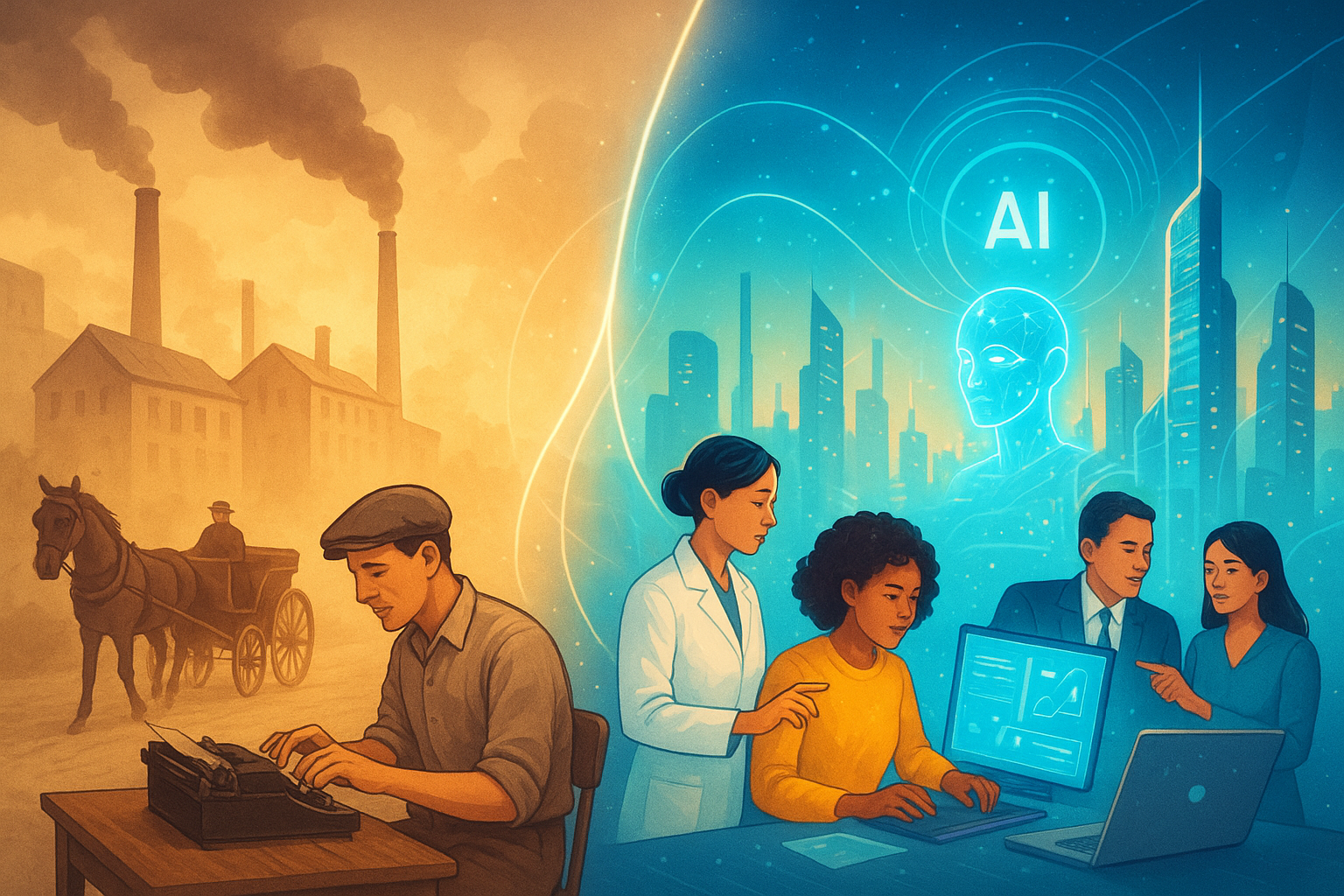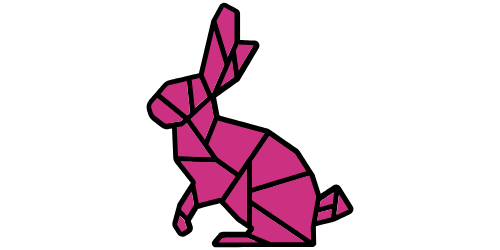
AI and Job Losses: Are We Looking at This All Wrong?
Share
AI is coming for jobs. That part is undeniable.
But is this really the doomsday scenario that people are making it out to be? Will AI wipe out entire industries, leaving humans obsolete? Or is this just another case of people using yesterday’s logic to predict tomorrow’s reality?
History says we’re asking the wrong questions.
When automobiles took over, people panicked:
“What about the horse breeders? The blacksmiths? The buggy makers?”
No one was asking:
“What about the road builders? The mechanics? The gas stations? The motels?”
New technology doesn’t just destroy jobs—it creates entire industries we can’t yet imagine. AI is no different. In fact, AI is pro-job, pro-worker, and pro-human progress.
Yes, Some Jobs Will Disappear—Should We Even Care?
Let’s be real—some jobs deserve to go extinct.
- Self-driving cars? Taxi and truck drivers will be out.
- AI-powered checkouts? Cashiers are already disappearing.
- Automated legal review? Paralegals, you’ve been warned.
But here’s the thing: this has happened before.
The Industrial Revolution didn’t just kill off farming jobs—it created factories, engineers, supply chains, and global trade. The Internet didn’t just eliminate newspapers—it built social media, e-commerce, and digital advertising.
AI is about to do the same—on a much bigger scale.
So, are we focusing too much on what’s being lost instead of what’s being created?
AI Won’t Replace You—But Someone Using AI Will
If you’re worried about job security, here’s the best move you can make: start using AI.
- AI Makes Humans 10x More Productive – Why spend hours on emails, reports, and data crunching? AI does the grunt work so you can focus on strategy, execution, and decision-making.
- Businesses Will Scale Faster With Fewer People – The next billion-dollar companies won’t need thousands of employees. A small AI-powered team of 20-40 people can do what used to take an entire corporation.
- Innovation Will Move at Warp Speed – AI isn’t just optimizing workflows—it’s revolutionizing industries. Scientific breakthroughs, business growth, and problem-solving that used to take years will now take days.
So here’s the question: are you keeping up, or will you be left behind?
The Smartest Thing You Can Do Right Now? Get AI-Literate.
If you want to future-proof your career, here’s what you should be doing right now:
- Experiment with AI tools – Play around with ChatGPT, MidJourney, Auto-GPT. See what’s possible.
- Use AI to automate tasks – Emails, research, analysis—start cutting hours of work down to minutes.
- Learn AI communication skills – Knowing how to prompt AI for the best results is becoming a high-value skill.
Imagine walking into your next job interview and confidently saying:
"I know AI. I’ve been using it, and here’s how it makes me more efficient."
That one sentence will set you apart from 99% of job seekers. While everyone else is afraid of AI replacing them, you’ll be the one leveraging AI to outperform them.
So, if AI isn’t the enemy of workers, could it actually be the greatest tool for career growth we’ve ever seen?
AI Is a Job Creation Engine—Not a Job Killer
AI isn’t just eliminating jobs—it’s creating new ones.
- AI Trainers – Someone has to teach AI how to understand human nuance.
- Prompt Engineers – Knowing how to get AI to deliver the best results is now a high-paying skill.
- AI Ethics & Compliance – We’ll need experts to ensure AI is used responsibly.
And that’s just the beginning. AI is supercharging creativity, innovation, and wealth creation in ways we’ve never seen before.
Think about it:
- AI will accelerate medical research.
- AI will optimize energy and climate solutions.
- AI will revolutionize how businesses grow.
This isn’t the end of jobs—it’s the beginning of a new era of work.
Final Thought: Will You Fight AI, or Will You Use It to Win?
Yes, AI will change everything. Yes, some jobs will die. But for every industry AI disrupts, it will create three more.
The people who will struggle? The ones who refuse to adapt.
The ones who will thrive? Those who embrace AI, learn how to use it, and position themselves ahead of the curve.
So, are we looking at AI and job losses all wrong?




